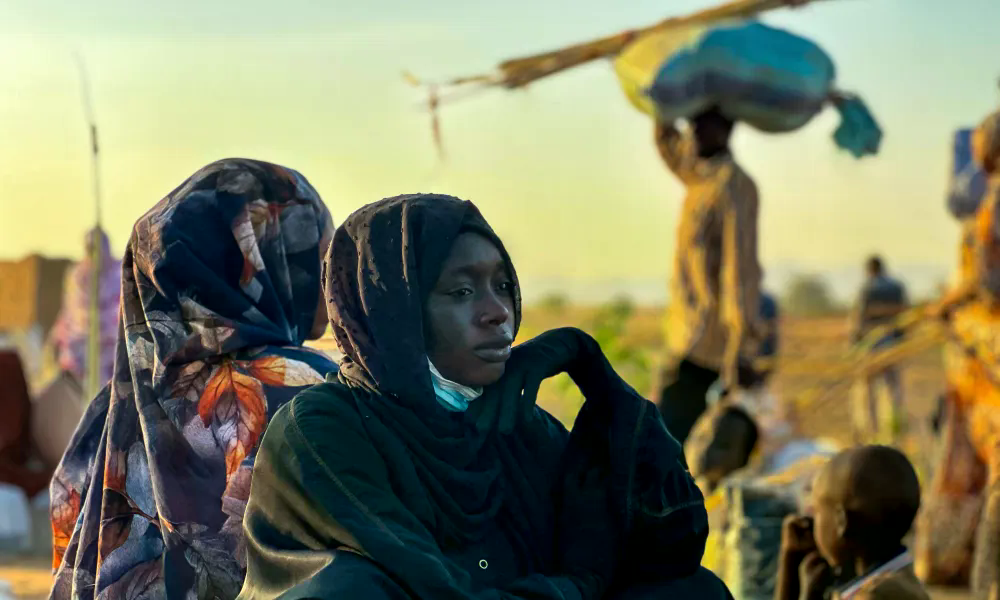
Abubakr Ahmed, a 29-year-old resident of el-Fasher, was prepared to die on the soil he had fought hard to protect from Sudan’s paramilitary Rapid Support Forces (RSF). For 550 days, he served as part of the “popular resistance,” a neighborhood group formed to support the Sudanese Armed Forces (SAF) and allied armed groups in defending the city from the RSF. El-Fasher had been the last major SAF stronghold in Darfur until it fell on October 26.
According to SAF chief Abdel Fattah al-Burhan, the army negotiated a safe withdrawal of its troops to prevent further bloodshed. However, this departure left approximately 250,000 civilians—many of whom were starving and vulnerable—to face the RSF alone. Ahmed described his escape from the city, along with a small group of young men, during the final clashes. A rocket-propelled grenade explosion near his vehicle caused shrapnel injuries, but he managed to flee while many others did not.
“The RSF killed civilians and left their corpses in the streets,” Ahmed told Al Jazeera after escaping. “They were killed without mercy.”
According to local monitor Sudan’s Doctors’ Network, at least 1,500 people were killed in the first three days following the RSF’s capture of el-Fasher. This includes 460 patients and their companions from al-Saud hospital, verified by the World Health Organization. Videos authenticated by Al Jazeera’s Sanad verification unit showed RSF troops standing over dead bodies or executing unarmed young men.
The violence has already forced more than 33,000 people to flee the city, with many arriving in nearby towns such as Tawila and Tine, about 60 kilometers away. However, most civilians remain trapped in el-Fasher, hiding from RSF gunmen. Others are making dangerous journeys through the desert in search of safety, often separated from family and lacking food or water.
Mohammed, another survivor, reached Tawila on October 28 and expects thousands more to arrive soon. He belongs to one of the sedentary non-Arab tribes that have historically faced persecution from the nomadic Arab tribes that dominate the RSF. “The majority of people won’t stay in el-Fasher because they are terrified of the RSF,” he said. “They don’t trust them because they know they will be persecuted.”
Despite promises from RSF leader Mohamad Hamdan “Hemedti” Dagalo to investigate reports of abuses, survivors and analysts describe the killings in el-Fasher as a systematic attempt at ethnic cleansing. The Yale Humanitarian Research Lab (HRL) reported clear evidence of mass killings as people tried to flee, noting that satellite imagery alone cannot fully capture the scale of the atrocities.
Sheldon Yett, UNICEF’s Sudan representative, called the situation in el-Fasher “killing fields.” He compared the scenes to the genocide in Rwanda, expressing concern over the perpetrators’ pride in their actions. Yett also noted that UNICEF has lost contact with many local relief workers, including those managing community kitchens that provide critical food aid.
The RSF has a history of targeting relief workers across Sudan, often accusing them of collaborating with the army. Lytt, a UNICEF official, stated that many of their partners in el-Fasher remain in precarious conditions, either on the move or in hiding.
International condemnation followed the reports of atrocities in el-Fasher, with the UN, United States, and European Union urging the RSF to protect civilians and adhere to international law. However, survivors and analysts argue that the global community should have taken stronger diplomatic action to prevent such tragedies.
Hamid Khalafallah, an expert on Sudan, criticized the international community for failing to act effectively. “This is a case of refusal and betrayal by the international community,” he said. “They didn’t try to do anything serious in regards to protecting civilians.”
Jean-Baptiste Gallopin of Human Rights Watch highlighted the RSF’s pattern of committing mass atrocities after seizing territory, as seen in previous conflicts in West Darfur. He criticized diplomats for prioritizing ceasefire talks over accountability, allowing the RSF to operate with impunity.
“Diplomats are focused on getting to an elusive ceasefire and in that process they put aside any measures to protect civilians or sanction perpetrators,” Gallopin said. “But then, nobody is held to account for attacks on civilians, and the international community washes its hands of the atrocities that occur.”


